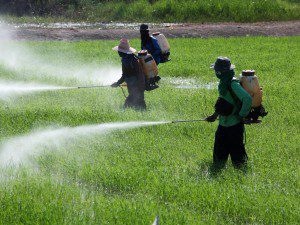Contributing Writer for Wake Up World
Globally, one person dies by suicide roughly every 40 seconds. Around the world, over one million people commit suicide each year — an increase of 60 percent over the last four and a half decades. Incredibly, farmers have one of the highest rates of self-inflicted death.
Newsweek reports that suicide for farmers in the U.S. is about twice the average of the general population. However, this isn’t just a problem in America; it’s an international crisis.
“India has had more than 270,000 farmer suicides since 1995. In France, a farmer dies by suicide every two days. In China, farmers are killing themselves to protest the government’s seizing of their land for urbanization. In Ireland, the number of suicides jumped following an unusually wet winter in 2012 that resulted in trouble growing hay for animal feed. In the U.K., the farmer suicide rate went up by 10 times during the outbreak of foot-and-mouth disease in 2001, when the government required farmers to slaughter their animals. And in Australia, the rate is at an all-time high following two years of drought.”
[pro_ad_display_adzone id=”110028″]
Although factors such as poor yield, financial stress, erratic weather and animal disease certainly contribute to a high suicide rate in farmers, researchers are beginning to suspect another cause: exposure to pesticides.
20-year study establishes a connection between depression and conventional farming chemicals
Researchers at the National Institute of Health completed a historic study earlier this fall which confirmed that seven pesticides — some of which are widely used — contribute to clinical depression in farmers. Over the last two decades, the team interviewed almost 84,000 farmers and their spouses. The findings were startling. Dr. Freya Kamel, lead researcher for the study, said that two specific types of pesticide were responsible for the massive uptick in depression — organochlorine insecticides and fumigants. Each increases the risk of depression by an astounding 90 and 80 percent, respectively. One of the more common varieties is called malathion and is used by approximately 67 percent of the farmers surveyed. It also just happens to be banned in Europe.
This isn’t the only study that links pesticides to depression. According to Newsweek:
“A group of researchers published studies on the neurological effects of pesticide exposure in 2002 and 2008. Lorrann Stallones, one of those researchers and a psychology professor at Colorado State University, says she and her colleagues found that farmers who had significant contact with pesticides developed physical symptoms like fatigue, numbness, headaches and blurred vision, as well as psychological symptoms like anxiety, irritability, difficulty concentrating and depression. Those maladies are known to be caused by pesticides interfering with an enzyme that breaks down the neurotransmitter that affects mood and stress responses.”
In the end, both studies beg the question: If farmers who utilize conventional pesticides as part of their profession are experiencing the damaging consequences of the chemicals, what is the effect on the general public who ingest the substances through their food?
Article sources:
- http://www.suicide.org
- http://ehp.niehs.nih.gov
- http://www.newsweek.com
- http://npic.orst.edu
- http://www.ncbi.nlm.nih.gov
- http://modernfarmer.com
- http://science.naturalnews.com
Previous articles by Carolanne:
- Dry Skin Brushing Can Strengthen Immunity, Spark Detoxification and Reverse Aging
- Cannabis Dissolves Cancerous Tumor in Young Infant, Deemed ‘Miracle Baby’ by Physician
- Report Finds Cancer Deaths Have Doubled in Argentina’s GMO Growing Regions
- Is Mold Making You Sick?
- Why Everyone Should be Eating More Hempseed
- Slash your Organic Food Bill by Almost 90 Percent with This One Simple Method
- Autistic Boy with Higher IQ Than Einstein Discovers Gift After Removal from State-Run Therapy
- Enhance Spiritual, Mental and Physical Well-being with a Pineal Gland Detox
- Enterprising Community Aims for Total Food Self-Sufficiency with Free Edible Landscapes
- DIY $2 Self-Watering Garden Bed – Grow Produce Easily, Even in the Toughest Conditions
[pro_ad_display_adzone id=”110025″]
Please note: this article by Carolanne Wright first appeared on Natural News.
[pro_ad_display_adzone id=”110027″]







